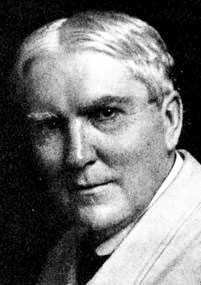Clean Business
Dr. Frank Crane (1861–1928) was a Presbyterian minister, speaker, and columnist who wrote a set of ten volumes of "Four Minute Essays". In volume five we find his treatise entitled Clean Business: "Better than big business is clean business. To an honest man the most satisfactory reflection after he has amassed his dollars is not that they are many but that they are all clean. What constitutes clean business? The answer is obvious enough, but the obvious needs restating every once in a while. A clean profit is one that has also made a profit for the other fellow. This is fundamental moral axiom in business. Any gain that arises from another's loss is dirty. Any business whose prosperity depends upon damage to any other business is a menace to the general welfare. When a farmer sells a housekeeper a barrel of apples, when a milkman sells her a quart of milk, or the butcher a pound of steak, or the dry-goods man a yard of muslin, the housekeeper is benefited quite as much as those who get her money. That is the type of honest, clean business, the kind that helps everybody and hurts nobody. Of course as business becomes more complicated it grows more difficult to tell so clearly whether both sides are equally prospered. No principle is automatic. It requires sense, judgment, and conscience to keep clean; but it can be done, nevertheless, if one is determined to maintain his self-respect. A man that makes a habit, every deal he goes into, of asking himself, "What is there in it for the other fellow?" and who refuses to enter into any transaction where his own gain will mean disaster to some one else, cannot go for wrong. And no matter how many memorial churches he builds, nor how much he gives to charity, or how many monuments he erects in his native town, any man who has made his money by ruining other people is not entitled to be called decent. A factory where many workmen are given employment, paid living wages, and where health and life are conserved, is doing more real good in the world than ten [philanthropic] institutions. The only really charitable dollar is the clean dollar. And the nasty dollar, wrung from wronged workmen or gotten by unfair methods from competitors, is never nastier than when it pretends to serve the Lord by being given to the poor, to education, or to religion. In the long run all such dollars tend to corrupt and disrupt society. Of all vile money, that which is the most unspeakably vile is the money spent for war; for war is conceived by the blundering ignorance and selfishness of rulers, is fanned to flame by the very lowest passions of humanity, and prostitutes the highest ideal of men — zeal for the common good — to the business of killing human beings and destroying the results of their collective work."
z |
